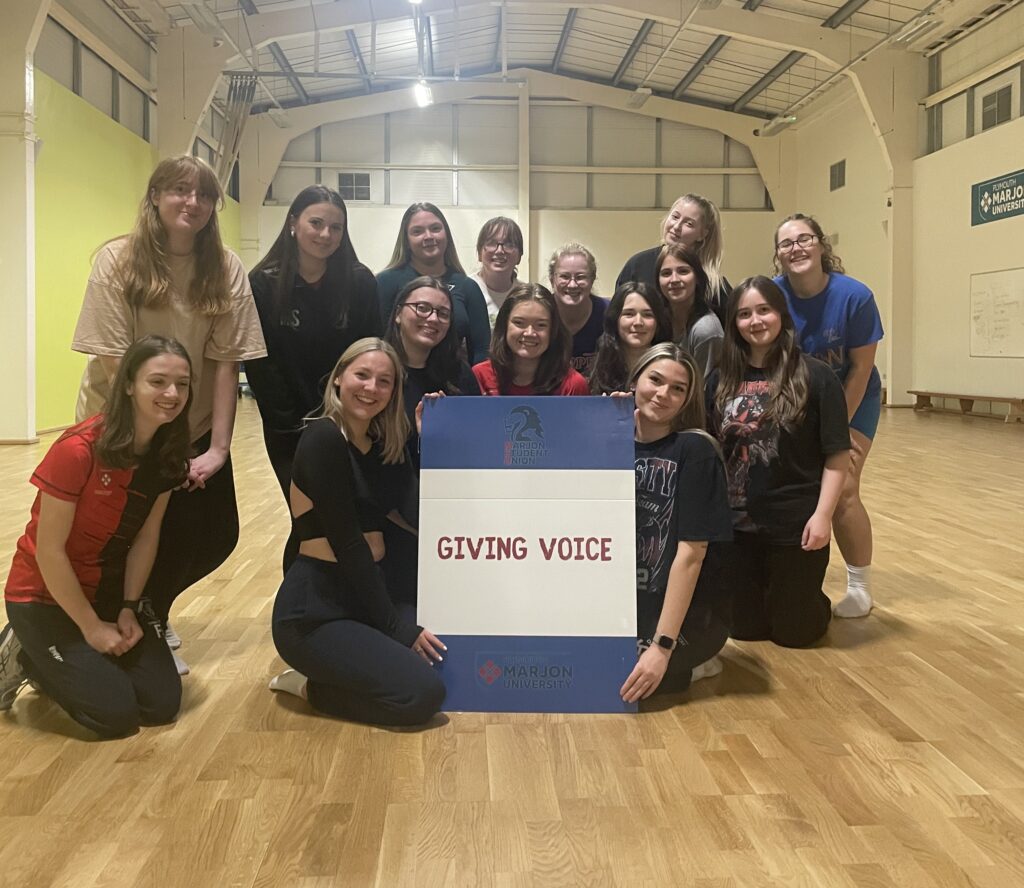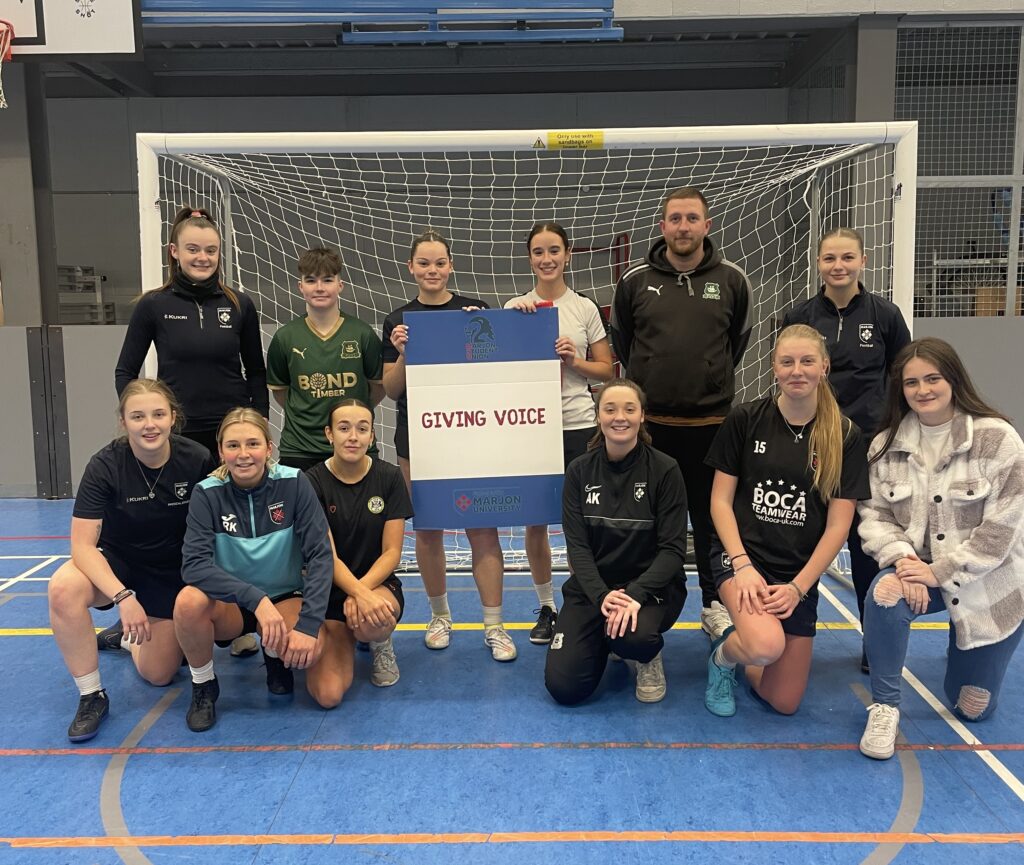Published
22 October 2025
Author
Newly qualified speech and language therapist, Ella James, discusses the ‘silent matches’ the Giving Voice Society at Plymouth Marjon University organised to raise awareness of communication differences during her time as the president of the society.
At Plymouth Marjon University, the Giving Voice Society organised an event which saw sport teams participate in their sport of choice in silence for 20 minutes. This event was to raise awareness of the difficulties of getting involved in sport for individuals with speech, language, or communication differences.
During the term year, the Giving Voice Society made collaboration a key focus as one of its’ initiatives. As a society we are determined to spread awareness of communication difference and speech and language therapy across the university and beyond. With Plymouth Marjon University carrying a very strong sporting identity we decided to involve players from different sports teams and worked with multiple sports teams both on and outside of campus over the course of a few months.
“It was frustrating, trying to understand what people were thinking was the most difficult .”
– Player feedback
Following discussions and interest from various teams, we initially developed collaborations with the following teams: lacrosse, women’s futsal, table tennis, cheerleading, dance, and men’s football. To highlight the potential difficulty someone with communication differences could face when participating in sport, each team took part in a silent match which consisted of 10-20 minutes of players only using non-verbal communication to communicate with each other during the game.
Prior to these matches, we worked closely with the coaches and captains of all the teams to ensure that, without verbal communication, this activity could be carried out safely. For example, all players were briefed on what to do if they got injured/needed support during the game.
After the games had taken place, the Giving Voice Society asked for feedback from the players and coaches about what was difficult during the game and if any aspect was easier or improved by only playing with non-verbal communication. Much of the feedback, particularly among the university teams, stated that they were surprised at how difficult they found the matches and hadn’t even considered some of the difficulties that an individual could face when getting involved in sport.
“Without communication, teamwork was difficult and you miss out on the comradery.”
– Player feedback
The coaches also shared their thoughts, with one coach from an under-11’s team stating that they hadn’t considered how much of an impact non-verbal communication would have. The match made them consider their own coaching style and how this could be adapted to support somebody with a communication difference. Since the awareness event, this team have included elements of ‘silent practice’ into their training sessions to highlight the import of non-verbal communication during the game.
Each match was recorded, and a final video was made collating the match footage and feedback. This video was posted on the Marjon Giving Voice Instagram page and received over 1,200 views.
The Giving Voice Society hope to continue this concept with other sports teams with the aim of spreading awareness outside of speech and language therapy of the impacts and potential difficulties individuals may face when getting involved in extracurricular sport activities.
 Ella James
Ella James





